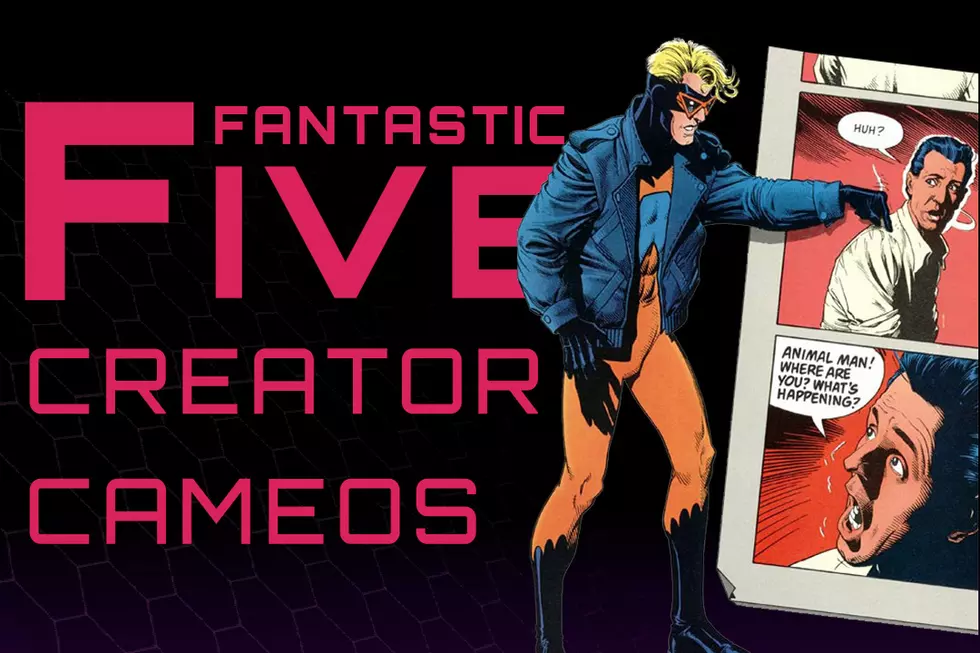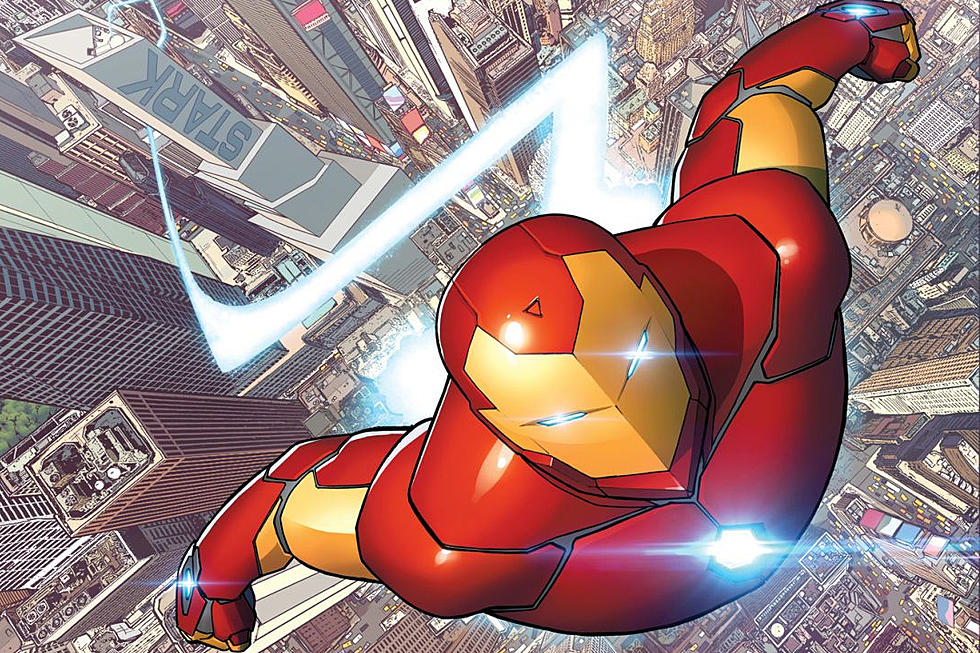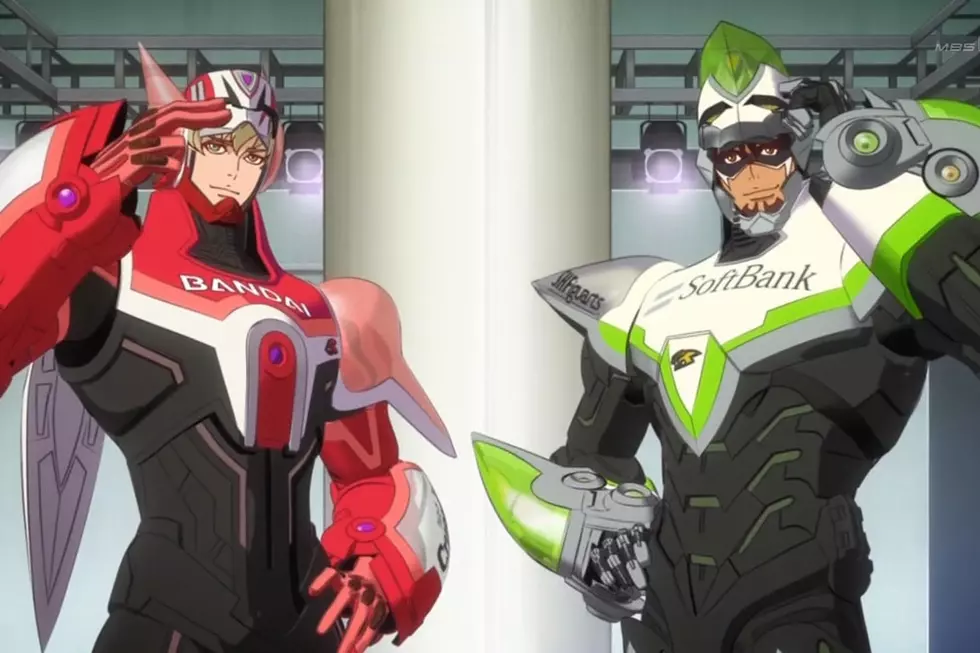![Why Video Game Censorship Matters to Stan Lee, the CBLDF, and Comics [Opinion]](http://townsquare.media/site/622/files/2010/09/leecensorship.jpg?w=980&q=75)
Why Video Game Censorship Matters to Stan Lee, the CBLDF, and Comics [Opinion]

Last week, Stan Lee endorsed the Video Game Voter's Network and the fight to preserve our First Amendment rights in the face of a long-running attempt to ban the sale of violent video games to minors in California. A short time later, the Comic Book Legal Defense Fund also came out in favor of the 9th circuit ruling these proposed standards unconstitutional.
This case, Schwarzenegger v. EMA, has nothing to do with comic books, so what's up with Stan the Man and the CBLDF speaking out? Shouldn't they be out there fighting whatever new boogieman is trying to censor comics? But while it may not be immediately apparent, by speaking out against video game censorship, Lee and the Comic Book Legal Defense Fund (our partner in the Monsters Project) are safeguarding the future of comics as well. A quick history lesson before we get into it: I'm sure you've heard of Fredric Wertham. He was the crusading psychiatrist who penned "Seduction of the Innocent," a book that suggested that comics were a corrupting influence on the nation's sweet, gullible children. He suggested that comics, whether crime, superhero, or horror, were full of excessive violence, inappropriate sex, and scads of adult themes. His book gained a small audience and still managed to trick a bunch of parents into demanding all comic books be censored and returned to whatever fake idea of the good old days that they came up with.
A quick history lesson before we get into it: I'm sure you've heard of Fredric Wertham. He was the crusading psychiatrist who penned "Seduction of the Innocent," a book that suggested that comics were a corrupting influence on the nation's sweet, gullible children. He suggested that comics, whether crime, superhero, or horror, were full of excessive violence, inappropriate sex, and scads of adult themes. His book gained a small audience and still managed to trick a bunch of parents into demanding all comic books be censored and returned to whatever fake idea of the good old days that they came up with.
In 1954, the United States Senate Subcommittee on Juvenile Delinquency (which counted among its members Senator Estes Kefauver, who brought the mob into the public consciousness) took a couple days to discuss whether or not comics were turning our All-American kids into murderers and thieves. Wertham appeared before the committee and testified, alongside several comics professionals and anti-comic experts. In the end, the subcommittee's decision boiled down to something like, "Well, yeah, these are super-violent and all, and that isn't really a good thing, but we're not gonna legislate, so you guys just try to do better, okay? Cool."
In short: Wertham lost and comics won. But in exchange, the comics industry came up with what we know as the Comics Code Authority, which effectively neutered the comics industry and relegated it to telling stories for children for decades, a decision that proved potentially just as debilitating. The impact of the CCA was so great that you could make a pretty good case that even today, comics are still trying to climb their way out of the hole the Comics Code Authority helped create after being defined as "for children" for decades upon decades.
Now, some sixty years later, video games are facing a similar situation. Stephen Totilo of Kotaku has written two excellent pieces breaking down all of the major details of the case. Who Argues Violent Video Games Are Like Porn, And Who Disagrees and This Is California's U.S. Supreme Court Argument Against Violent Video Games. If you want to discuss this case, they're must read. While I can't explain the situation half as well as Totilo did, I can definitely explain exactly why this video game ruling is important for both video games and comics, particularly if it goes the way California would like. One of the biggest takeaways from Totilo's posts is that like the comic controversy in the '50s, the push to ban the sale of violent video games to minors relies mostly on junk science, vague phrasing, conjecture, and moral panic to grasp at validity.
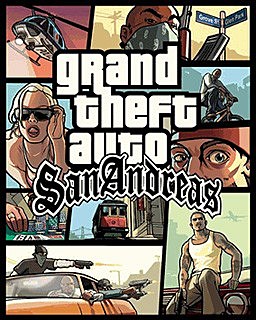 As detailed in Totilo's posts, the state of California is approaching the idea that video games cause violent tendencies in minors as fact, rather than theory. You can make a convincing case for viewing violent material having, at the very least, a temporary effect on the behavior of human beings, not just children. What you cannot do, however, is point and say, "This always has a negative effect on anyone who touches it." Correlation does not imply causation, and while the relationship between video games and violence is something worth studying, you can't legislate it out of oblivion and expect that to fix everything. It didn't work for alcohol or pornography, did it?
As detailed in Totilo's posts, the state of California is approaching the idea that video games cause violent tendencies in minors as fact, rather than theory. You can make a convincing case for viewing violent material having, at the very least, a temporary effect on the behavior of human beings, not just children. What you cannot do, however, is point and say, "This always has a negative effect on anyone who touches it." Correlation does not imply causation, and while the relationship between video games and violence is something worth studying, you can't legislate it out of oblivion and expect that to fix everything. It didn't work for alcohol or pornography, did it?
The moral panic aspect is particularly laughable. California's position states that video games cause aggressive behavior, which provides a vague link to the various crimes that the media and law enforcement have claimed have been spawned by the likes of "Grand Theft Auto" and other violent games. There is no genuine proof, no hard evidence, that one has anything to do with the other, beyond the fact that someone who committed a crime also happened to own a video game. The number of people who have committed crimes due to either getting the idea from video games or being influenced by a game is incredibly small, particularly when compared to people who, you know, just commit crimes for money or other reasons. The consumption of video games as an indicator of criminal activity is about as reliable as action movies or wrestling are an indicator of martial arts training.
California's law is yet another po-faced appeal to think of the children. By charging companies when minors purchase violent video games, supporters claim, the law will assist parents in the struggle to raise their children by helping them protect their kids from negative influences. The problem is that a system designed to inform parents of in-game content and including a ratings system based on age already exists. It's called the Entertainment Software Rating Board, or ESRB, and almost every video game comes with two boxes displaying the rating the ESRB chose to give it.
Every major retailer in the land refuses to allow children to purchase M-rated games, and even the precious few mom and pop shops left in the country know better. Retailers even serve as a second layer of protection, or meddling (depending on your point of view), in a way. Games that are given an Adults Only rating are pretty much banned entirely from most retailers, which is why there have been less than thirty Adults Only games in the entire history of the ESRB, several of which ended up either cancelled or edited to secure a Mature rating.
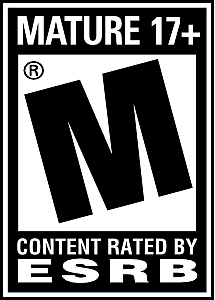 The video game industry is already self-policing, for better or for worse. For the government (at any level) to step in and impose new, and seemingly arbitrary rules on the industry can only stifle free speech. Video games are definitely protected speech, with the only real difference between games and other protected speech being a certain level of interactivity. The only reason they are seen as lesser than novels or movies is due to their reputation as entertainment devices for children and a very wide underage user base.
The video game industry is already self-policing, for better or for worse. For the government (at any level) to step in and impose new, and seemingly arbitrary rules on the industry can only stifle free speech. Video games are definitely protected speech, with the only real difference between games and other protected speech being a certain level of interactivity. The only reason they are seen as lesser than novels or movies is due to their reputation as entertainment devices for children and a very wide underage user base.
There's nothing as powerful as a parent's wish to keep his or her child safe, and politicians and activists are more than willing to exploit this. If you want to gain attention for your cause, simply demonstrate or make up reasons why it it protects children from harm and watch people line up behind you. In this case, though, attempting to protect children by way of legislation is a huge mistake. By censoring video games in the name of the kids, the California government runs the risk of creating an easy path to censor other forms of entertainment, including -- wait for it -- comic books. While comics do not have quite the infantile reputation they once did, simply glancing at any comics article in a mainstream publication will surely demonstrate just how many people still assume that comics are for children.
The CBLDF and Dark Horse recently won in a case in Oregon that proves just how wrong-headed California's law would be. The Oregon law was dedicated to "protecting our children" by preventing the distribution of sex education and non-obscene materials to minors. It was needlessly broad and would have censored several perfectly acceptable books in the name of so-called protection, including Kentaro Miura's "Berserk," a book rated for mature readers only, and Judy Blume's "Forever," a novel which presented a realistic portrayal of teenage sex and the trials that come with it. Read that again: a book already aimed at mature readers, i.e., "people who are not children," and a book that presents a non-exploitative view of sex would have been censored under this law.
Simply put: Government-led censorship is wrong, and doubly so in this case, where the video game industry already self-censors and has taken action to prevent minors from coming into contact with inappropriate material. Letting overzealous legislators censor video games means that there's a fair chance something else -- like comics -- would be next. After all, it's happened before, and as we can see today, it's happening again. We shouldn't, as conscious consumers and adults, allow it to get that far.
More From ComicsAlliance



